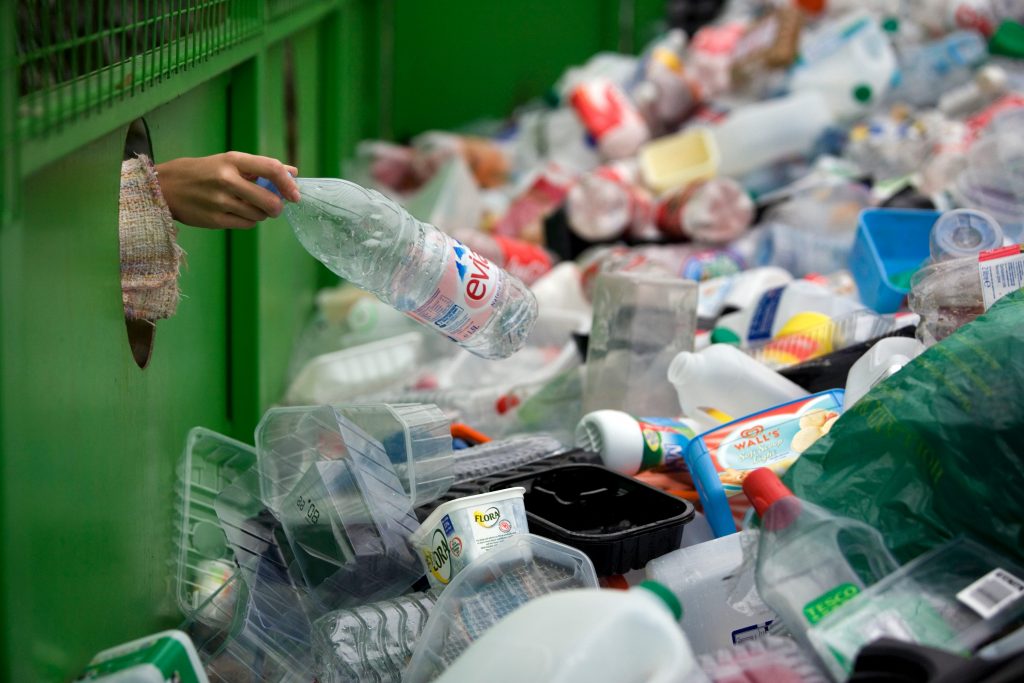- Plastics are everywhere: in our food, water, and air, and sometimes in our organs and blood.
- Recycling doesn't prevent products from shedding bits of microplastic that pollute human bodies.
- Researchers say that plastics should be phased out for less toxic materials to protect human health.
Plastic is probably in your food or drinking water, and now scientists fear it might be flowing through your veins.
A small study published last month found that the blood of 17 out of 22 people contained microplastics — plastic fragments smaller than a sesame seed. It's the first time those tiny bits of fossil-fuel product have been detected in human blood, but the discovery is no surprise to plastics researchers.
"Plastics are everywhere," Rolf Halden, the director of the Biodesign Center for Environmental Health Engineering at Arizona State University, told Insider.
Previous studies have found microplastics in humans' food, drinking water, poop, placentas, and lungs, and drifting through the air we breathe. A 2019 analysis estimated that the average American ingested about 50,000 microplastic particles each year and inhaled about the same amount. Another study from 2021 estimated that the average person ingested a credit card's worth of plastic each week.
"I expect in the end, we are all exposed," Marja Lamoree, a chemist at Vrije Universiteit in Amsterdam who coauthored the study discovering microplastics in blood, told Insider.
The health consequences of that exposure aren't fully clear. Research has linked common chemicals in plastics — such as bisphenol A (BPA), phthalates, and per- and polyfluoroalkyl substances (PFAS) — to increased risk of cancer, issues with fertility and development, and hormone disruption. One study suggested that microplastics in human guts could trigger harmful inflammation and start processes associated with cancer. Another found that the particles altered cell function in human lung cells.
Sustainable alternatives to recycling
Recycling, long a popular solution to plastic pollution, isn't protecting us. In fact, some researchers say it's a distraction.
"I'm usually, at birthday parties, the person in the room that doesn't really like recycling," Lamoree said. "I think it's so much better to replace the type of plastic with some more sustainable solution."
A 2020 study cited by the UN Environment Programme found that less than 10% of the 7 billion metric tons of plastic waste worldwide has ever been recycled.
That's partially because it's cheaper to make new plastic from oil or gas, an investigation by NPR and PBS suggests. What's more, the report said, plastic degrades every time it's recycled — typically it can be reused only once or twice. Decades of technological development haven't solved these problems.
"Recycling, for the most part, has failed," Halden said.
Even if more plastic were recycled, that probably wouldn't keep it from building up in human bodies. The past few years of research show that plastics we use daily are shedding microscopic bits and invisible chemicals into our food, water, and air. Those hidden plastics can't be recycled.
"It's in our food chain, it's in our clothing, in the textiles in our house. We walk on it, play on it, sleep on it, wear it," Heather Leslie, a chemist, and ecotoxicologist who led the study of microplastics in blood, told Insider. "As long as we're using this stuff, little bits of it are going to be coming free."
Instead, Leslie and Halden said, industries should replace plastics with less toxic materials that won't persist in the environment for decades or centuries. Builders can use wood or tile instead of vinyl flooring, and brooms can be made with twigs instead of polypropylene, Leslie added. But substitutions might be more difficult for many medical devices, vehicles, electronics, food-safety packaging, and other things people use every day which require plastic parts.
Though they're far from replacing plastics on a large scale, researchers are designing alternative materials made from more-biodegradable sources like mushrooms, bamboo, sugar, and fish waste.
"I think there's a solution. It's on the horizon," Leslie said. "I have all kinds of confidence in human ingenuity that we can have this."

